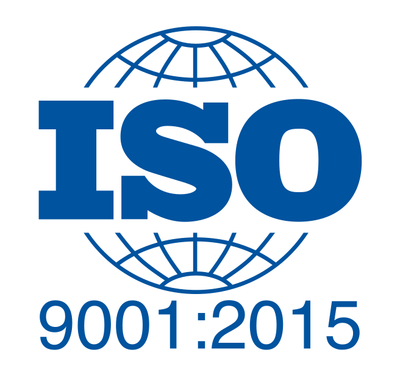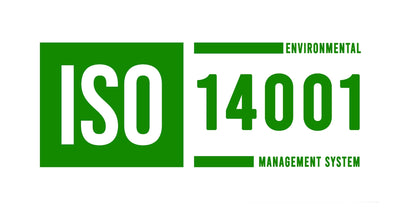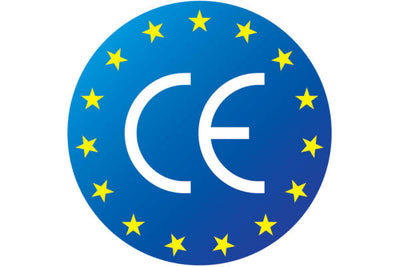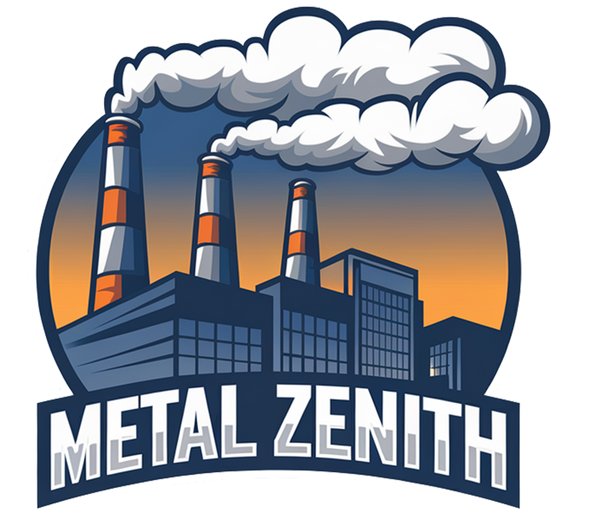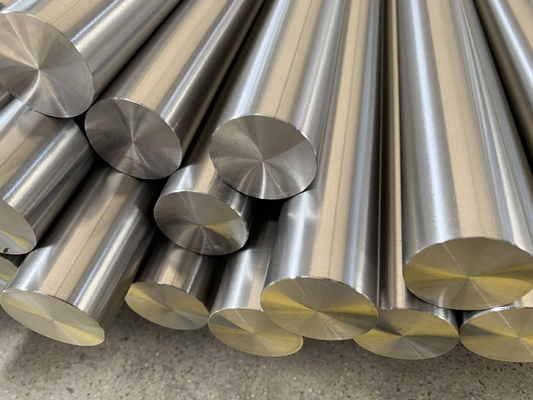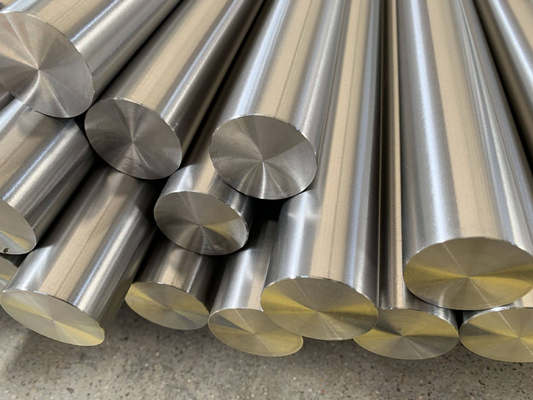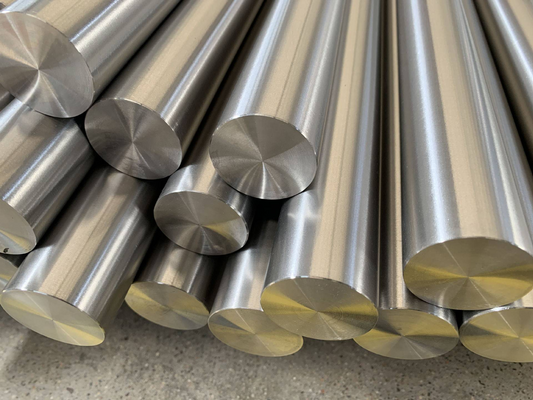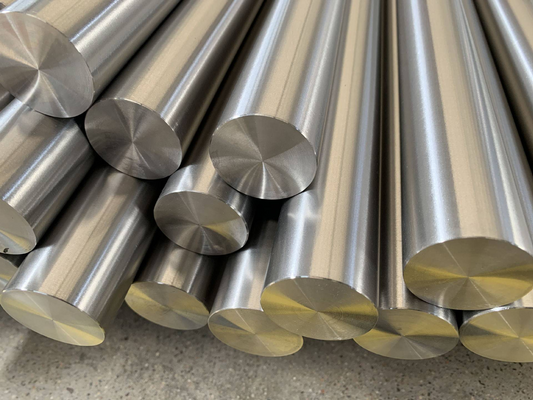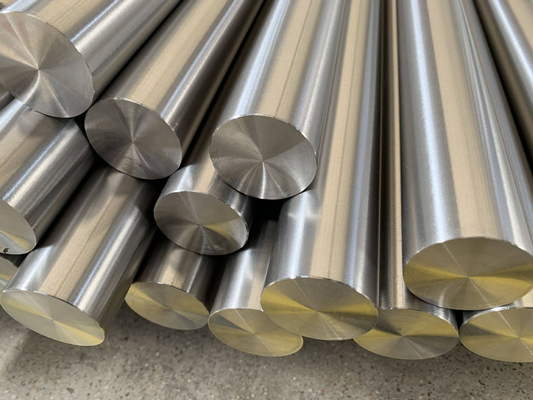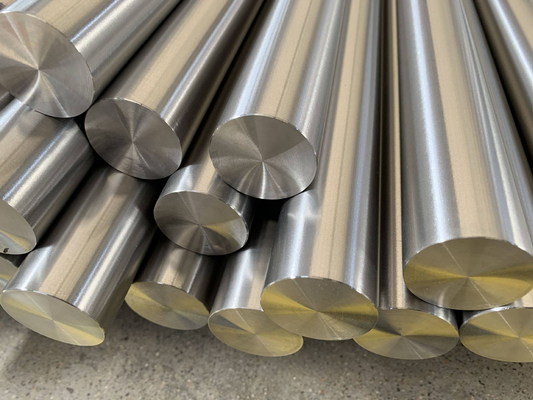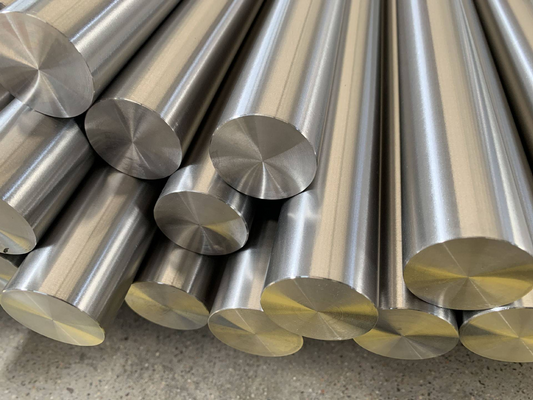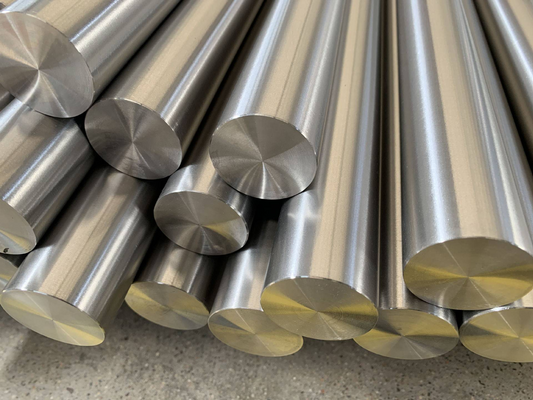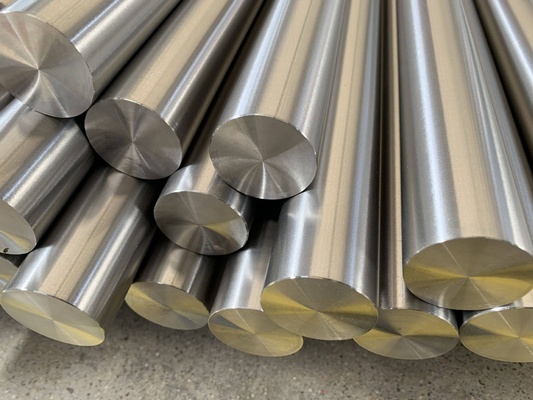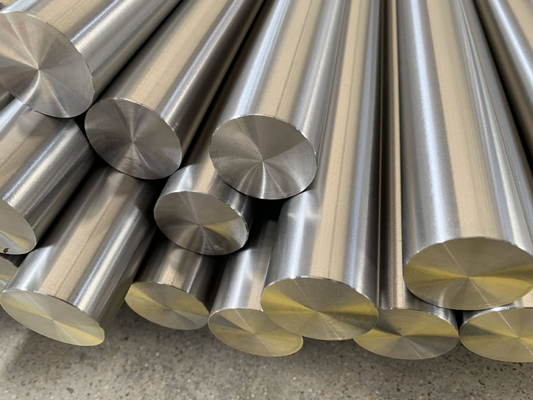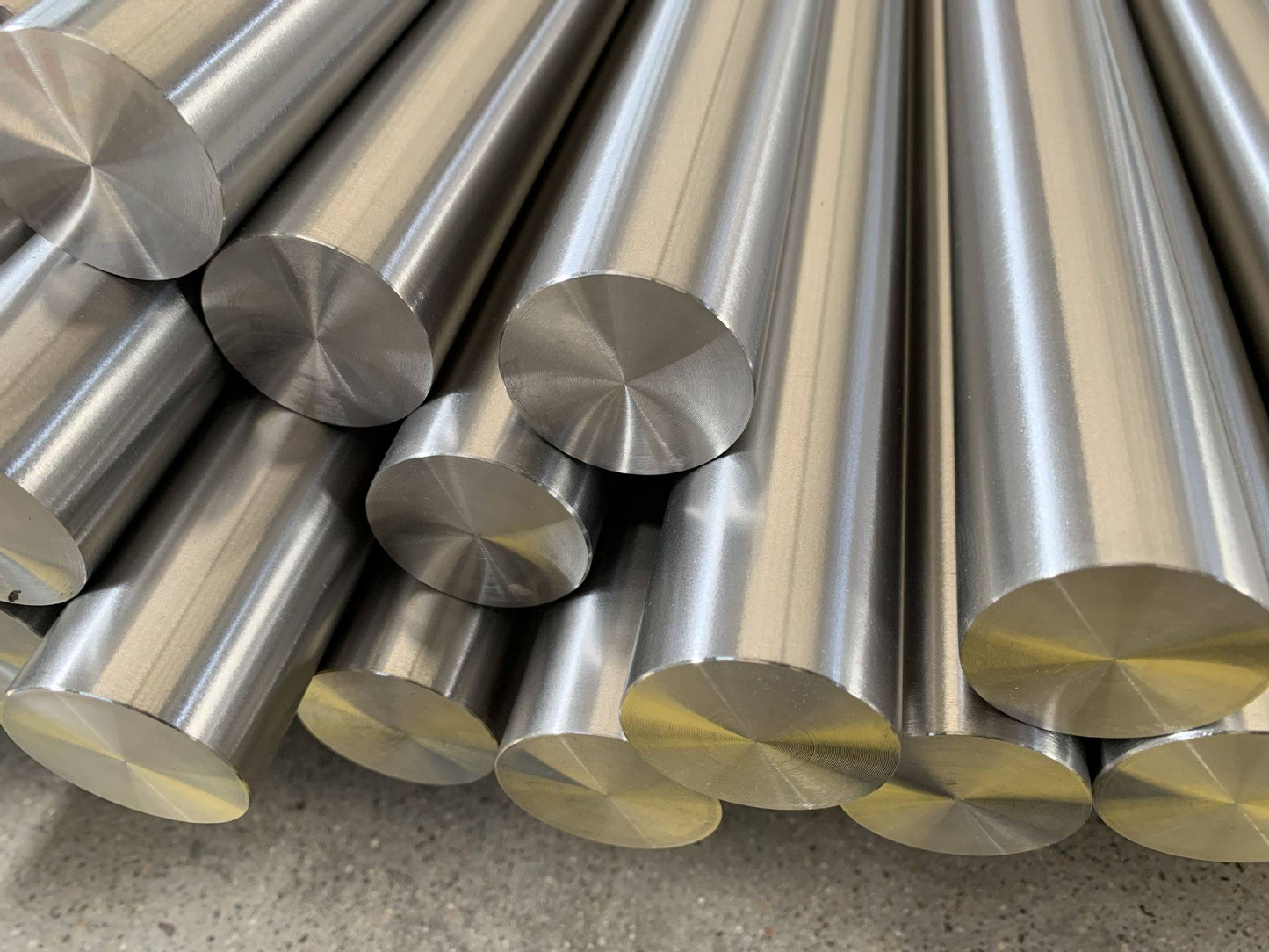
20 Years Experience | 1000+ Brand Partners | Full Customization
We have 20 years of industry experience, have partnered with over 1,000 brands, and support any customization needs.
Technical Specifications
Product Overview
Metallurgical Characteristics
UNS N10276 exhibits a face-centered cubic (FCC) austenitic structure that remains stable across a wide temperature range. The alloy's exceptional corrosion resistance stems from its high molybdenum and chromium content, which forms a protective passive film in aggressive environments. MetalZenith's controlled melting process ensures uniform distribution of alloying elements, minimizing segregation and optimizing corrosion performance.
Heat Treatment Process
MetalZenith employs a proprietary solution annealing process at 1120°C ± 15°C, followed by rapid water quenching to achieve optimal microstructure. This treatment dissolves carbides and ensures single-phase austenitic structure while maximizing corrosion resistance. Post-annealing pickling removes heat treatment scale and surface contamination, providing superior surface quality for critical applications.
Manufacturing Process Excellence
Our integrated manufacturing process begins with vacuum induction melting (VIM) of premium raw materials, followed by electroslag remelting (ESR) for enhanced cleanliness. Hot working operations utilize controlled atmosphere furnaces and precision rolling/forging equipment. Cold working processes employ specialized tooling to maintain dimensional accuracy while preserving material properties. All operations are performed under strict quality control protocols with real-time monitoring.
Quality Standards & Testing
MetalZenith maintains comprehensive quality assurance programs compliant with ISO 9001:2015, AS9100D, and NADCAP requirements. Every heat undergoes complete chemical analysis using optical emission spectroscopy and X-ray fluorescence. Mechanical property verification includes tensile testing, hardness measurement, and impact testing per ASTM standards. Specialized corrosion testing validates performance in specific environments, while non-destructive testing ensures material integrity throughout the supply chain.
🧪 Chemical Composition
| Element | Composition (%) |
|---|---|
| Nickel (Ni) | Balance (57.0 min) |
| Molybdenum (Mo) | 15.0 - 17.0 |
| Chromium (Cr) | 14.5 - 16.5 |
| Iron (Fe) | 4.0 - 7.0 |
| Tungsten (W) | 3.0 - 4.5 |
| Cobalt (Co) | ≤ 2.5 |
| Manganese (Mn) | ≤ 1.0 |
| Vanadium (V) | ≤ 0.35 |
| Silicon (Si) | ≤ 0.08 |
| Carbon (C) | ≤ 0.01 |
| Sulfur (S) | ≤ 0.03 |
| Phosphorus (P) | ≤ 0.04 |
⚙️ Mechanical Properties
| Property | Value |
|---|---|
| Tensile Strength (Room Temperature) | ≥ 690 MPa (100 ksi) |
| Yield Strength (0.2% Offset) | ≥ 283 MPa (41 ksi) |
| Elongation in 50mm | ≥ 40% |
| Reduction of Area | ≥ 65% |
| Hardness (Rockwell B) | ≤ 100 HRB |
| Hardness (Brinell) | ≤ 230 HB |
| Impact Energy (Charpy V-Notch, Room Temp) | ≥ 200 J (148 ft-lbs) |
| Fatigue Strength (10&sup7; cycles) | 310 MPa (45 ksi) |
| Young's Modulus | 205 GPa (29.7 × 10&sup6; psi) |
| Shear Modulus | 81 GPa (11.8 × 10&sup6; psi) |
| Poisson's Ratio | 0.31 |
🔬 Physical Properties
| Property | Value |
|---|---|
| Density | 8.89 g/cm³ (0.321 lb/in³) |
| Melting Point Range | 1370-1400°C (2500-2550°F) |
| Thermal Conductivity (100°C) | 10.1 W/m·K (70 BTU·in/hr·ft²·°F) |
| Thermal Conductivity (500°C) | 17.4 W/m·K (121 BTU·in/hr·ft²·°F) |
| Thermal Expansion (20-100°C) | 11.2×10-6/K (6.2×10-6/°F) |
| Thermal Expansion (20-500°C) | 12.4×10-6/K (6.9×10-6/°F) |
| Specific Heat (20°C) | 427 J/kg·K (0.102 BTU/lb·°F) |
| Electrical Resistivity (20°C) | 1.29 µΩ·m (51 µΩ·in) |
| Magnetic Permeability | 1.002 (Essentially Non-magnetic) |
| Curie Temperature | Not Applicable |
📏 Product Specifications
| Specification | Available Options |
|---|---|
| Product Forms | Round Bar, Flat Bar, Plate, Sheet, Strip, Tube, Pipe, Wire, Forging Stock |
| Round Bar Diameter | 6mm - 300mm (0.25" - 12") |
| Plate Thickness | 3mm - 150mm (0.125" - 6") |
| Sheet Thickness | 0.5mm - 6mm (0.02" - 0.25") |
| Tube Outer Diameter | 6mm - 200mm (0.25" - 8") |
| Standards Compliance | ASTM B575, ASME SB-575, UNS N10276, DIN 2.4819, EN 10204-3.1 |
| Surface Finish | Hot Rolled, Cold Rolled, Annealed, Pickled, Polished (2B, BA, Mirror) |
| Dimensional Tolerance | ASTM Standard, Custom Precision Tolerances Available |
| Length Options | Standard: 3m, 6m, 12m | Custom lengths up to 18m |
| Heat Treatment Condition | Solution Annealed (1120°C), Rapid Quench, Custom Heat Treatment |
| Testing & Certification | Mill Test Certificate, Third-Party Inspection, PMI, Mechanical Testing |
Let Us Create Success for Your Project
Professional Team, Premium Products, Complete Service - Your Project Success is Our Mission
Our Advantages in Processing UNS N10276

Advanced Vacuum Melting Technology
MetalZenith employs state-of-the-art vacuum induction melting (VIM) and electroslag remelting (ESR) processes to produce UNS N10276 with exceptional chemical homogeneity and minimal inclusion content. Our controlled atmosphere processing ensures optimal metallurgical structure and consistent mechanical properties throughout the material.
Comprehensive Quality Control Systems
Our integrated quality management system includes real-time chemical analysis, advanced mechanical testing, and specialized corrosion resistance evaluation. MetalZenith's laboratory facilities feature the latest spectroscopic equipment and corrosion testing chambers to verify material performance against the most stringent industry specifications.


Custom Processing & Global Supply Chain
MetalZenith offers extensive customization capabilities including precision machining, specialized heat treatments, and custom alloy modifications. Our global distribution network ensures reliable delivery worldwide, while our technical support team provides engineering assistance for application-specific requirements and material selection optimization.
YOUR TRUSTED STEEL
MANUFACTURING PARTNER
สอบถามด่วน
Industries We Serve
Professional steel solutions across major industries
Qualifications & Certifications
